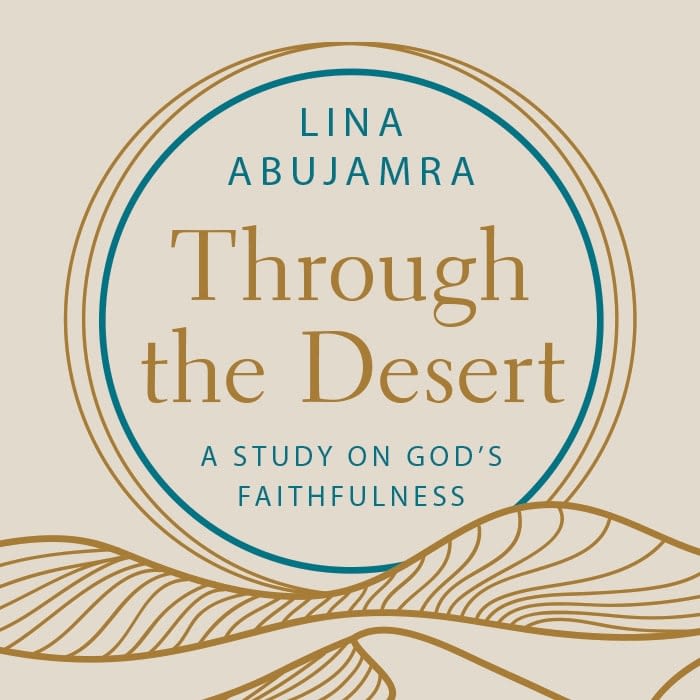Sometimes the Bible is prescriptive, instructing us on how we should act and revealing the lives of those we should emulate. We can think of Esther’s courage and Deborah’s selfless leadership. Other times the Bible is proscriptive, warning us away from dangerous behaviors and ways of thinking. The story of Rachel is an example of the latter.
Who is Rachel in the Bible?
Rachel is Laban’s daughter, Leah’s younger sister, Jacob’s wife, and Isaac and Rebekah’s daughter-in-law. As the Bible introduces us to her, two things are highlighted: she is deeply loved by Jacob and she is a beauty.
The Bible compares Rachel to her sister in Genesis 29:17 in this way: “Leah’s eyes were weak, but Rachel was beautiful in form and appearance.” It’s hard for our modern, western mindsets to capture what was meant by describing Leah’s eyes as “weak,” but what’s easy for us to understand is when two women are side-by-side and one is described as “beautiful in form and appearance,” the other person might as well be a hag.
It’s hard to compete with stunningly gorgeous.
I imagine this physical comparison between these sisters didn’t suddenly start when an eligible bachelor came on the scene—this had probably been going on since birth. I can also guess that the comparisons didn’t end with physical attributes. And it doesn’t take a rocket scientist to deduce this negatively impacted their bond.
Readers of this story in Genesis are offered a front-row seat to this sisterly saga because you really can’t tell Rachel’s story without telling Leah’s—they are so intertwined. We might feel like we’ve seen this movie before: the popular “it” girl with the star quarterback boyfriend and wallflower sister has a life that’s not as perfect as it seems. But keep in mind, the story of Rachel and her sister Leah isn’t a remake—this is the original and happened well before celluloid was used to make film.
Boy Meets Girl
First, the romantic element is introduced and Hollywood couldn’t hold a candle to the way the Lord set the scene for Jacob and Rachel’s first encounter. It’s a hot day, there is a cool well, and an opportunity for Jacob to flex his muscles rolling away a stone so he can heroically water a maiden’s sheep. They kiss, he cries . . . it’s a whole thing!
Jacob falls deeply and madly in love and offers to work for Rachel’s father, Laban, for seven years to earn the right to marry her. Laban wholeheartedly agrees. After the seven years are complete, Laban gathers wedding guests and a feast, the bride and the groom, and it’s not until the next morning that Jacob realizes he has married Leah, the older (and apparently unwanted) sister of his beloved. (This is where we all acknowledge we’ve got a few questions about the honeymoon evening but for the sake of the story, we press on.)
Outraged, the groom confronts his father-in-law whose excuse was that he did nothing outside of cultural norms in marrying off his older daughter first. Jacob agrees to another seven years of work for the pleasure of marrying his first choice, Rachel, who he weds one week after marrying Leah.
The Great Baby Race
So now the two sisters who most likely have never had a wonderful relationship are now competing over the affections of one man. However, when Jacob dearly loves one and not the other, this is not a fair fight. But then the Lord “opened [Leah’s] womb” (Gen. 29:32) and the stakes are raised.
Leah gives birth to her firstborn, Reuben, which means “See, a son.” She might as well have added, “HA!” to the front of his name. The second-fiddle sister thought she was on top; clearly, the Lord must have given her a strapping boy in order for her husband to love her.

Then she birthed Simeon, which sounds like “heard” in Hebrew, because the Lord must have heard her pleas for the attention of her husband. Along comes son number three, Levi, whose name means “attached”—because if two sons weren’t enough to keep Leah inside her husband’s attention orbit, three should do it.
It’s so clear to us where Leah’s thinking was faulty. She was competing with her beautiful, beloved sister and despite birthing three sons in a society that prized male heirs, her barren sister was somehow still winning.
Time for a Makeover
Every good story has a transformation, and movies take full-advantage of the visual delight viewers feel when we see a makeover montage, replete with copious cosmetics and hair products and the perfect pop song to back it. But Leah’s transformation didn’t take place in a dressing room or in a salon chair but where it matters most: her heart. By the time she conceives and bears her fourth son, her focus has finally changed from chasing the affections of a man, to appreciating the love and care that the Lord has always lavished on her. “This time I will praise the LORD,” she says as she names this fourth son Judah, whose name sounds like the Hebrew word for praise (Gen. 29:35).
Meanwhile, Rachel, who seems to have all of Jacob’s love, affection, and attention, isn’t satisfied. She wants what Leah has—children. Rachel accuses her husband of not giving her children, and he rightly reminds his beloved that is God’s place alone (Gen. 30:1–2). Instead of taking this conversation with Jacob to heart and turning to the Lord to lament her barren state to ask for Him to open her womb, she tries to fix things herself by offering her servant girl, Bilhah, to her husband so she can “have” a child through her.
I will admit when I get to this point in the story, I want to lambast Rachel for her manipulation of the situation. Who does she think she is trying to force God’s hand into giving her what she so desperately wants and He’s held out on? Why can’t she patiently wait on the Lord and His perfect timing or accept that He has promised to give us everything we need but not everything we want?
I’m so grateful when the Holy Spirit gently reminds me I have “Racheled” situations in my life more times than I care to count. I have pushed when I should have been still, spoke when I should have held my tongue, offered to speed things along when I should have waited.
Unsurprisingly, Rachel’s “solution” to the situation (like many of my own life’s examples) was far from the fix she was after and made things even more complicated. Bilhah proceeds to bear Dan and Naphtali. This compels Leah to enter her servant girl, Zilpah, into the race who bears Gad and Asher. Leah then has two more sons of her own, Issachar and Zebulun.
And similarly to the transformation that occurred with Leah, where she finally accepted and aligned herself with who God is and how that impacted her life’s purpose, we find that perhaps Rachel has something comparable happen. Genesis 30:22–23 records that “God listened to [Rachel] and opened her womb. She conceived and bore a son and said, ‘God has taken away my reproach.’”
God listened to her because she was finally speaking to Him in prayer about what was troubling her. In acknowledging the Lord taking away her reproach, she was admitting she had done something that needed rebuking. After having worked so hard at trying to craft an outcome she desired, she arrived at the end of herself and found the Lord.
Pray, Trust, and Wait
I’m disappointed when I realize talking to the Lord in prayer is step three or four on my list of dealing with problems and stressors. My intentions seem to be good—let me try and use the good brain the Lord has given me to solve this myself. However, what I should do is pray first, ask for the Lord’s wisdom to use the good brain He has given me, and proceed from there.
And just when we think we’re going to roll the credits on this happy ending, Rachel can’t seem to fully embrace this new, redeemed version of herself. Instead, she declares she’s naming her sweet bundle of joy Joseph which means “May he add.” And lest we misconstrue her intent she spells it out in Genesis 30:24, “May the LORD add to me another son!”
Much later in the story, the Lord does bless Rachel with another son, Benjamin. And if you were counting, that brings us to the twelve sons of Jacob who the Lord later renames Israel. Rachel, the beautiful and beloved wife, has the distinct honor of being the mother of Joseph who the Lord uses to rescue His people from famine.
And what about Leah, the also-ran older sister? What’s her epilogue at the end of this story? Her legacy lies with Judah, her fourth son she simply praised the Lord for instead of seeing him as a weapon in her arsenal against her sister. It is through his line that the Lord brings our ultimate rescue in our Redeemer, Jesus Christ.
The story of Rachel and Leah is certainly a cautionary tale. But even the proscriptive stories in the Bible, the ones with flashing red lights and alarm bells all over them, can encourage us toward running our own faith race more steadily and more courageously. I’m not sure what you’re currently asking the Lord for, what deals you’ve considered making and at what cost they’ll come. But let these sisters serve as a reminder that we need to wait on the Lord and trust His timing and His purposes (Rom. 8:28). Wanting what God wants for us will provide the firm ground and confidence we need to run well.
When have you been impatient with the Lord’s timing and what was the result? What situation or desires do you currently need to submit to the Lord? Pray for the Lord to give you greater trust in His power and ability to provide what you need and to help you with the disappointment that comes when you don’t get what you want.
Ready to Be Inspired by Even More Great Women of the Bible?
After you’ve had a chance to prayerfully reflect on the story of Rachel in the Bible, be sure to check out these related articles for even more encouraging stories and lessons from the famous women of the Bible!
- Martha: A Busybody in the Bible
- Strong Women in the Bible
- 5 Courageous Women in the Bible That Still Inspire Us Today
Visit this link to see a complete list of all the Inspiring Women of the Bible we’ve covered so far on the Esther Press website. Alternately, be sure to check out these great recommendations for Bible Studies about Women in the Bible.

Entrusted to Lead
A practical tool for women who are called to leadership roles in any area of life, Entrusted to Lead offers biblical insight and real-life encouragement for how to navigate their leadership journey.

I Don't Even Like Women
Collaborator or competition? Trusted friend or backstabbing rival? In I Don’t Even Like Women, Natalie Runion shows us how meaningful female friendships not only foster spiritual growth, they equip women to live out their calling with boldness and joy.




